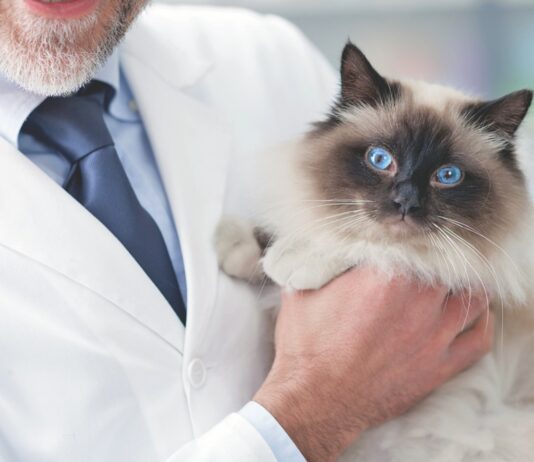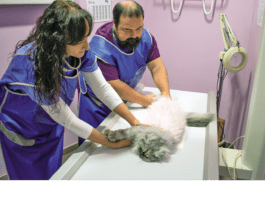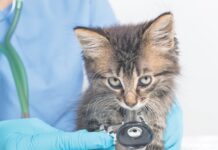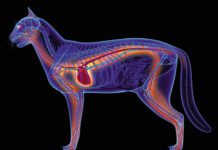Survival in Cats with High Rise Syndrome
High rise syndrome (HRS) is a term used for injuries sustained when pets fall from buildings. While retrospective studies investigating the prevalence of injuries...
What to Know About Aging in Cats
Just as in humans, as your cat ages, so does the likelihood of an age-related disease rearing its ugly head. Cats are considered seniors...
FDA Warning About 5-FU
The U.S. Food and Drug Administration (FDA) has received reports of dogs and cats having serious reactions after being accidentally exposed to the topical...
Is Genetic Testing Worth It?
The internet is abuzz with people doing breed identification for their mixed breed dogs, something like canine DNA genealogy. While DNA testing for cats...
Staggering Disease in European Cats
A disease that has plagued cats in Europe for almost 50 years is finally getting some clarification. “Staggering disease” shows up with neurologic signs...
Horner’s Syndrome: Sign of Middle Ear Damage
Because of the nerves traveling close to the middle ear, cats with an ear infection (see p. 6) may have facial nerve paralysis and/or...
Something’s In Her Eye
It’s not fun when you get something in your eye. A tiny eyelash feels like a giant log. Worse, if it gets in there...
Guidelines for Safe Pesticides Use in Cats
International CatCare (iCCare) and the International Society of Feline Medicine (ISFM) have embraced the worldwide concerns being raised about parasiticides used on pets and...
Feline Seizures
In a grand mal seizure, your cat collapses, loses consciousness, may roll or thrash, may urinate and/or defecate, and often vocalizes. Post seizure, there...
Detection of Heart Murmurs
Kudos to all who faithfully bring their beloved feline companions to the veterinarian every year for a wellness check. This is the best way...
Regulating Sugar Levels
Q:My 11-year-old neutered male has developed diabetes. We’ve been giving insulin twice a day for over a month now, starting out at 1 unit...
Most Common Heart Disease
It can be difficult to notice early heart disease in cats due to the fact that they are relatively sedentary and stoic in nature....














